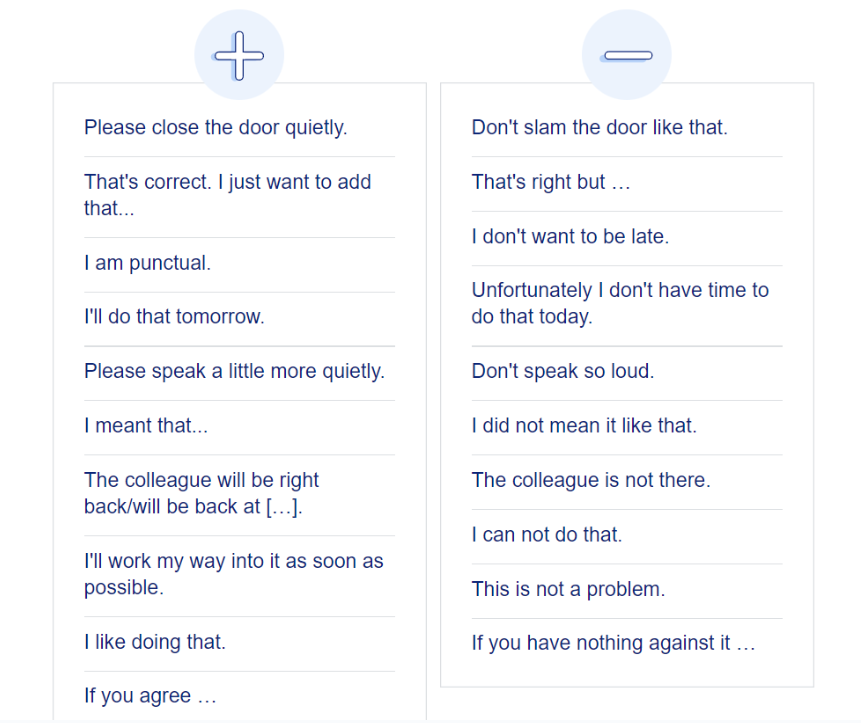If you want to get ahead in your job, you have to be convincing. Of course, it is important to work conscientiously, but a good style of speaking can also open doors: only those who communicate appropriately can draw positive attention to themselves in the long term. Read here how to improve your communication.
Practice language style: How can I communicate better?
Regardless of whether you work from home or sit in the office every day: Sooner or later you will be communicating with superiors, customers, or colleagues. It starts with the nice small talk in between and goes to the official lecture – and much more. If you come across as positive in these situations, you make yourself popular and do yourself and often even your own career a favor. Reason enough to train your language style a little.
In addition to the right choice of words, the pronunciation is also important. If you want to communicate better, pay attention to the following points:
- Speak clearly and distinctly: If you keep swallowing syllables, mumble to yourself in conversation, or speak particularly quietly, hardly anyone will understand you. Also, you seem insecure.
- Pay attention to a natural pronunciation: Especially in exciting situations, many people tend to speak in a strained or unnaturally high voice. Here it helps to train your diaphragmatic breathing. That means: Breathing deep into your stomach and then slowly let the air flow out again. After that, your voice will immediately sound stronger and fuller.
- Avoid filler words and (too much) subjunctive: “Eventually”, “maybe”, “thus”, “could”, “should” – if you constantly relativize your own statements with filler words or the subjunctive, you don’t seem self-confident. And is therefore often not taken seriously.
- Get to the point: Complicated box sets? You’d better avoid that. Short, crisp sentences are better for communication on the job. This makes it easier for the audience to follow you.
- Use foreign words carefully: Of course, every profession has its own jargon. Nevertheless, you should not throw foreign words around too often in conversations and lectures. True to the motto: Only those who can explain complicated things in a simple way really understand it.

Converting negative phrases into positive: tips and examples
- Your statements seem more precise and easier to understand.
- Instructions are better recognizable as such.
- You feel better and appear more confident.
- Your counterpart feels better and is more willing to respond to your wishes/demands.
Learning to communicate correctly: This is how you can improve your choice of words
The motto is clear: try to avoid negative formulations. The sticking point, however, is that negative formulations do not always automatically contain a negative statement. Some of them are necessary and should be used judiciously. So consciously reflect on your language habits in order to find out about negative formulations.
In the following graphic we have collected some examples of everyday negative phrases for you and compared them to their positive alternatives:

Also read : Tips for becoming an effective communicator


Leave A Comment